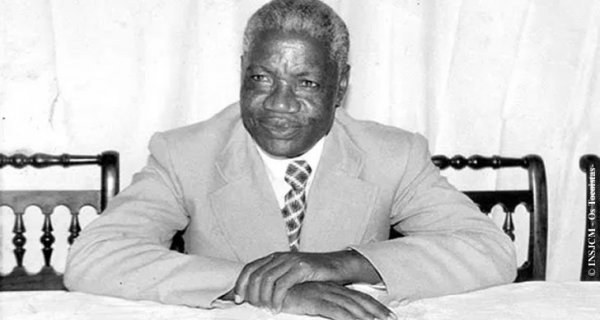Unfortunately, there are still voices that ignore the true dimension of this figure. There are those who question Simão Toko's contributions to peace, independence or the Angolan people. Even more serious, there are those who — through ignorance or bad faith — doubt his nationality, insinuating that he is not Angolan, but rather from the Democratic Republic of Congo. This is, without a doubt, a regrettable mistake.
Simão Toko was born in Sadi-Zulumongo, in the province of Uíge, on February 24, 1918. He lived and dedicated his life to the cause of Angola and Angolans. He completed a large part of his academic training in national territory and was a colleague of the first President of the Republic of independent Angola, Dr. Antônio Agostinho Neto.
Remembering the Church of Our Lord Jesus Christ in the World, on July 25, 1949, and founder of Tocoism, the name given by the colonial authorities to his followers, Simão Toko's mission transcended the spiritual domain. At a time when Angola did not yet know any organized political movements — as the first ones only emerged in 1958 — Toko laid, in 1946, the foundations of a movement that would come to be consolidated three years later. His vision was clear: there is no material liberation without a corresponding spiritual liberation.
Although the movement he led had no political-partisan orientation, it was repeatedly considered by the Portuguese colonial authorities as a political threat, which led to strong repression. There were several ways to silence his voice: assassination attempts, he was exiled to the Azores for 11 years and subjected to around 15 arrests. And yet, he never gave up.
He continued his mission with courage and serenity, promoting the moral, spiritual and social elevation of the Angolan people, building cohesive, organized and peace-oriented communities. A man gifted with prophetic vision, he anticipated the dangers that Angola would face in the transition to independence. In this sense, he undertook a diplomatic and spiritual journey, meeting with the leaders of the main liberation movements: Agostinho Neto (MPLA), Holden Roberto (FNLA) and Jonas Savimbi (UNITA). He warned everyone about the imminence of a bloodbath, appealing for understanding and reconciliation, at a time when political forces were deeply divided.
It is important to emphasize that Simão Toko never sought prominence. In 1974, during the decolonization process of Angola, he was invited by General António de Spínola, then President of the Portuguese Republic, to head a possible Transitional Government. He categorically refused, stating that this responsibility should lie with those who had taken up arms in the struggle for liberation. He also added that leadership positions should be divided between the leaders of the three main liberation movements, his fight was another "with the Bible in hand".
This aspect of his trajectory — so often ignored — deserves to be rescued. The fight for Angola's independence was not fought only with weapons. It was also done with prayers, with messages of hope, with actions of reconciliation and collective healing. Simão Toko led a true spiritual and cultural revolution, decolonizing consciences and giving Angolans back the conviction that God also speaks to Africans; that salvation can have a black face and an African voice; and that black people were never a cursed race, contrary to what was preached by the dominant ideologies of the time.
His influence transcended national borders, inspiring communities in the diaspora and leaving indelible marks across the African continent. He preached spiritual self-determination, but also defended political, cultural and identity freedom. And it was not limited to rhetoric: it organized structures, trained leaders, educated, and pacified.
The awarding of the Medal of Independence, in this context, represents more than a symbolic act. It is a gesture of historic courage, a recognition of the truth and a tribute to the thousands of Angolans who were persecuted, imprisoned or killed for sharing their prophetic vision.
Simão Toko is, without a doubt, one of the great patriots of the 20th century in Angola, a nationalist of excellence. Its history must be taught in schools, studied in universities, celebrated in our cultural and religious spaces. His legacy transcends the sphere of the Tocoista movement: it belongs to every Angolan nation that believes in independence based on faith, ethics and reconciliation.
As he himself said, through his spiritual successor, Bishop Dom Afonso Nunes: "A people without History is a people without a soul."
Simão Toko gave these people their souls back. May we never forget this!
Previous
The opinion of... Fred André








